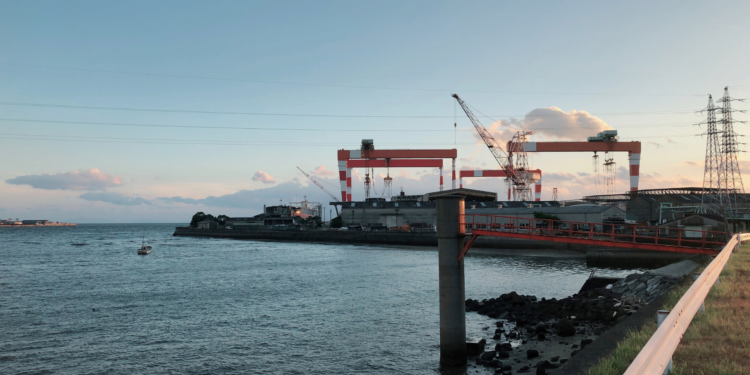A collective study has been conducted by Amogy, a provider of mature, scalable, and efficient ammonia-to-power solutions, and Mitsubishi Shipbuilding Co., Ltd. (MSB), a part of Mitsubishi Heavy Industries (MHI) Group. The feasibility study of a collaborative concept design of onboard hydrogen production and utilisation with Amogy’s ammonia-cracking technology and Mitsubishi Ammonia Supply and Safety System (MAmmoSS®) has been completed.
Amogy and MSB signed a Memorandum of Understanding (MoU) to conduct feasibility studies on an ammonia fuel supply system. The goal of this project is to help the maritime industry reach the new net zero greenhouse gas (GHG) emissions target set by the International Maritime Organisation (IMO) by 2050 or before. The two firms carried out research to verify the viability of two concept designs for collaboration: a hydrogen supply plant that would deliver hydrogen to ammonia fuel engines as a pilot fuel, and a power train that would combine ammonia cracking with hydrogen fuel cells for ships.
Amogy and MSB signed a Memorandum of Understanding (MoU) to conduct feasibility studies on an ammonia fuel supply system. The goal of this project is to help the maritime industry reach the new net zero greenhouse gas (GHG) emissions target set by the International Maritime Organisation (IMO) by 2050 or before. The two firms carried out research to verify the viability of two concept designs for collaboration: a hydrogen supply plant that would deliver hydrogen to ammonia fuel engines as a pilot fuel, and a power train that would combine ammonia cracking with hydrogen fuel cells for ships.
Ammonia has attracted interest as a fuel that can greatly reduce greenhouse gas emissions in the maritime sector due to its carbon-free nature. It is anticipated that ammonia will be used as a clean, dependable energy source in the future. Amogy has created a novel ammonia-to-electrical power technology that breaks down liquid ammonia into its constituent constituents of nitrogen and hydrogen. The hydrogen is then fed into a fuel cell to produce high-performance power, therefore realising the potential of ammonia. By working together to develop onboard hydrogen production and utilisation, MSB hopes to further the decarbonisation of the maritime sector, achieve a carbon-neutral society, and lessen global environmental impacts. Another example is the development of marine ammonia handling systems, which include fuel supply systems for various ammonia fuel consumers.
If you are interested in meeting with Shipyards working towards the decarbonisation of the marine industry, contact us today to learn about out MTB Shipyards event.

































